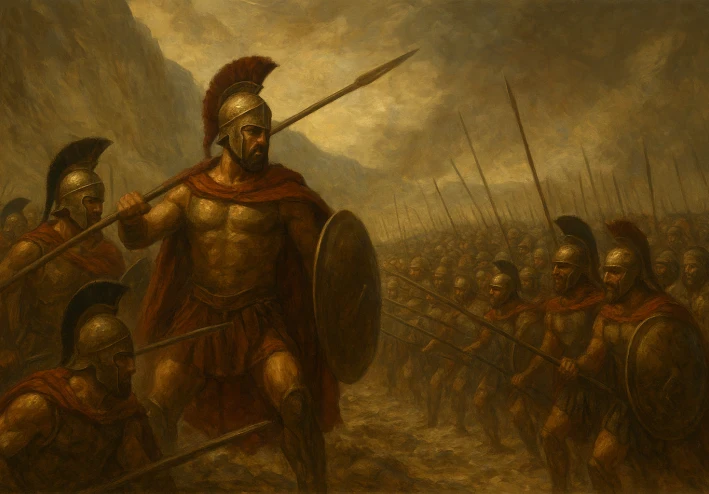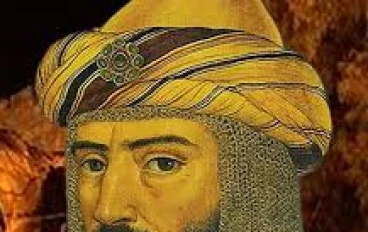
The Battle of Thermopylae: A Stand of Courage
The Battle of Thermopylae: A Stand of Courage
In the year 480 BCE, Greece faced one of its greatest threats. The Persian king Xerxes I had assembled a massive army, intent on conquering the Greek city-states. His forces numbered in the hundreds of thousands, a tide of men and ships that seemed unstoppable. Against this overwhelming power, a small coalition of Greek states decided to resist. Among them, the Spartans, led by their king Leonidas, became immortalized for their courage at the narrow pass of Thermopylae.
The pass of Thermopylae was a natural choke point between the mountains and the sea. The Greeks recognized its strategic value: if the Persians could be delayed here, it would buy precious time for the rest of Greece to prepare. Leonidas marched north with just 300 Spartan warriors, supported by about 7,000 allies from other Greek states. Though vastly outnumbered, they resolved to hold the pass for as long as possible.

For two days, the Greeks fought with unmatched bravery. Their heavy armor, discipline, and knowledge of the terrain allowed them to repel wave after wave of Persian attacks. The narrowness of the pass meant that Xerxes could not bring his full army to bear, forcing his soldiers into tight combat where the Greeks excelled. Stories tell of Spartans fighting with ferocity, their phalanx formation creating a wall of shields and spears that the Persians could not break.
Xerxes grew frustrated as his soldiers fell by the thousands. He even sent his elite Immortals, a force of ten thousand, but they too were repelled. The morale of the Persian army began to waver, while the Greeks gained confidence. For a brief time, it seemed possible that courage and strategy could triumph over sheer numbers.
However, betrayal would change everything. A Greek traitor named Ephialtes revealed to Xerxes the existence of a hidden mountain path that bypassed the main pass. Under the cover of darkness, Persian troops marched along this trail, positioning themselves to encircle the Greeks. When Leonidas learned of this, he knew the end was near.
Refusing to flee, Leonidas dismissed most of the allied troops, choosing to remain with his 300 Spartans, along with a few hundred Thespians and Thebans who stayed behind. Their sacrifice would delay the Persians and inspire all of Greece. On the third day, the Spartans fought to the death. Their spears shattered, their swords dulled, yet they continued to resist until the very last man fell. Leonidas himself was slain, but his bravery echoed through history.
Though the Persians won the battle, the heroic defense at Thermopylae became a rallying cry for the Greeks. United by the Spartans’ sacrifice, the city-states prepared for greater battles to come. Within a year, the Greeks achieved a decisive naval victory at Salamis and later triumphed at Plataea, ending Xerxes’ invasion.
The stand of the 300 became more than just a tale of war; it was a lesson in courage, sacrifice, and unity. It showed that even against impossible odds, bravery could inspire nations and change the course of history. Thermopylae remains one of the most celebrated last stands the world has ever known.





































